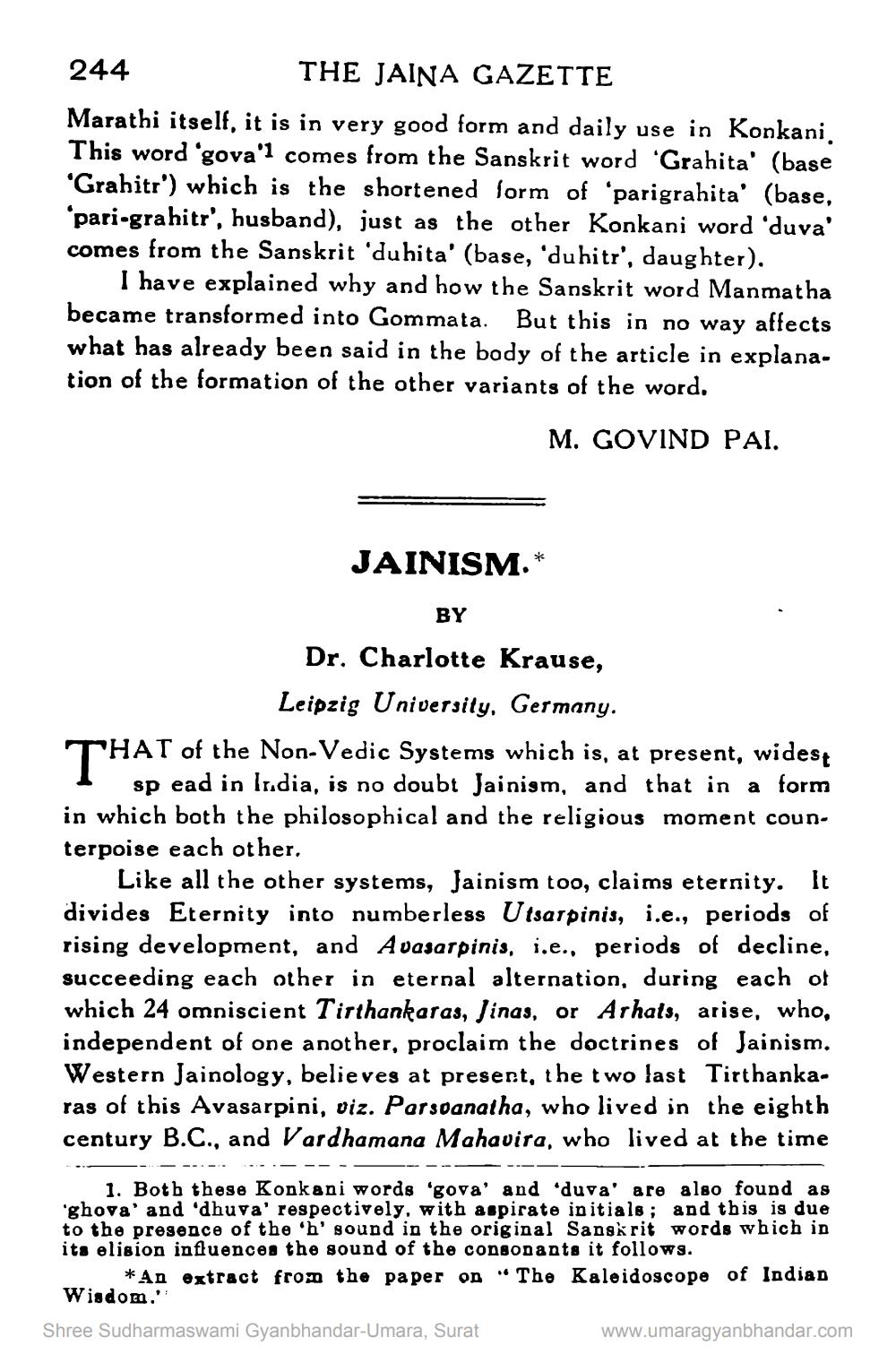________________
244
THE JAINA GAZETTE Marathi itself, it is in very good form and daily use in Konkani. This word 'gova'l comes from the Sanskrit word 'Grahita' (base 'Grahitr') which is the shortened form of 'parigrahita' (base, 'pari-grahitr', husband), just as the other Konkani word 'duva' comes from the Sanskrit 'duhita' (base, 'duhitr', daughter).
I have explained why and how the Sanskrit word Manmatha became transformed into Gommata. But this in no way affects what has already been said in the body of the article in explanation of the formation of the other variants of the word.
M. GOVIND PAI.
JAINISM.*
BY
Dr. Charlotte Krause,
Leipzig University, Germany. THAT of the Non-Vedic Systems which is, at present, widest
sp ead in India, is no doubt Jainism, and that in a form in which both the philosophical and the religious moment counterpoise each other.
Like all the other systems, Jainism too, claims eternity. It divides Eternity into numberless Utsarpinis, i.e., periods of rising development, and Avasarpinis, i.e., periods of decline, succeeding each other in eternal alternation, during each of which 24 omniscient Tirthankaras, Jinas, or Arhats, arise, who, independent of one another, proclaim the doctrines of Jainism. Western Jainology, believes at present, the two last Tirthankaras of this Avasarpini, viz. Parsoanatha, who lived in the eighth century B.C., and Vardhamana Mahavira, who lived at the time - ---
- -- - 1. Botb these Konkani words 'gova' and 'duva' are also found as 'ghova' and 'dhuva' respectively, with aspirate initials; and this is due to the presence of the 'h' sound in the original Sanskrit words which in ita elision influences the sound of the consonants it follows.
*An extract from the paper on "The Kaleidoscope of Indian Wisdom.' Shree Sudharmaswami Gyanbhandar-Umara, Surat
www.umaragyanbhandar.com




